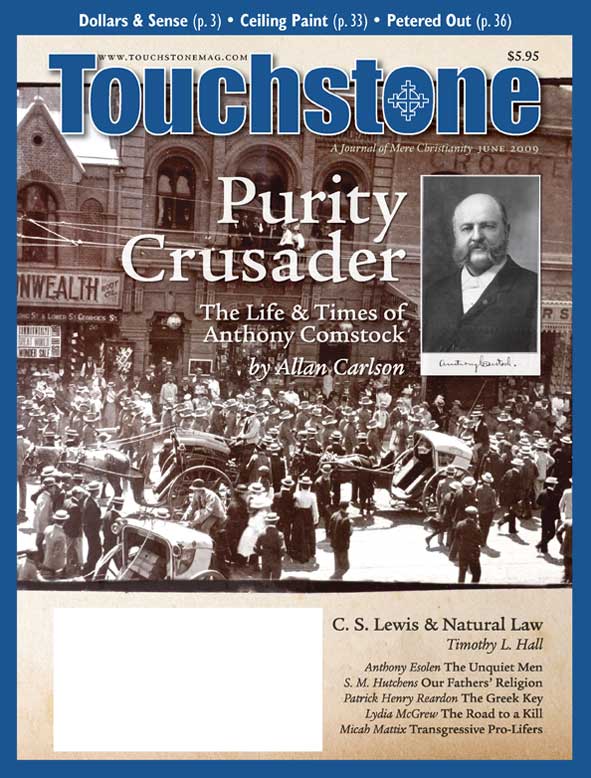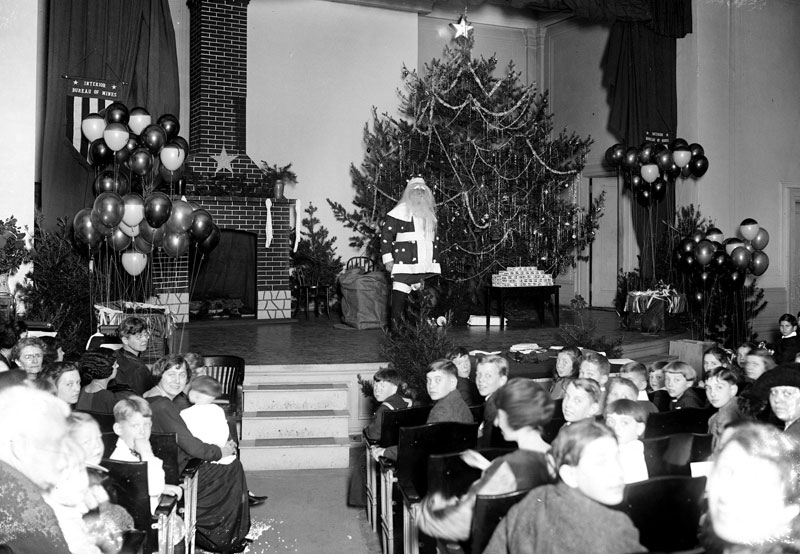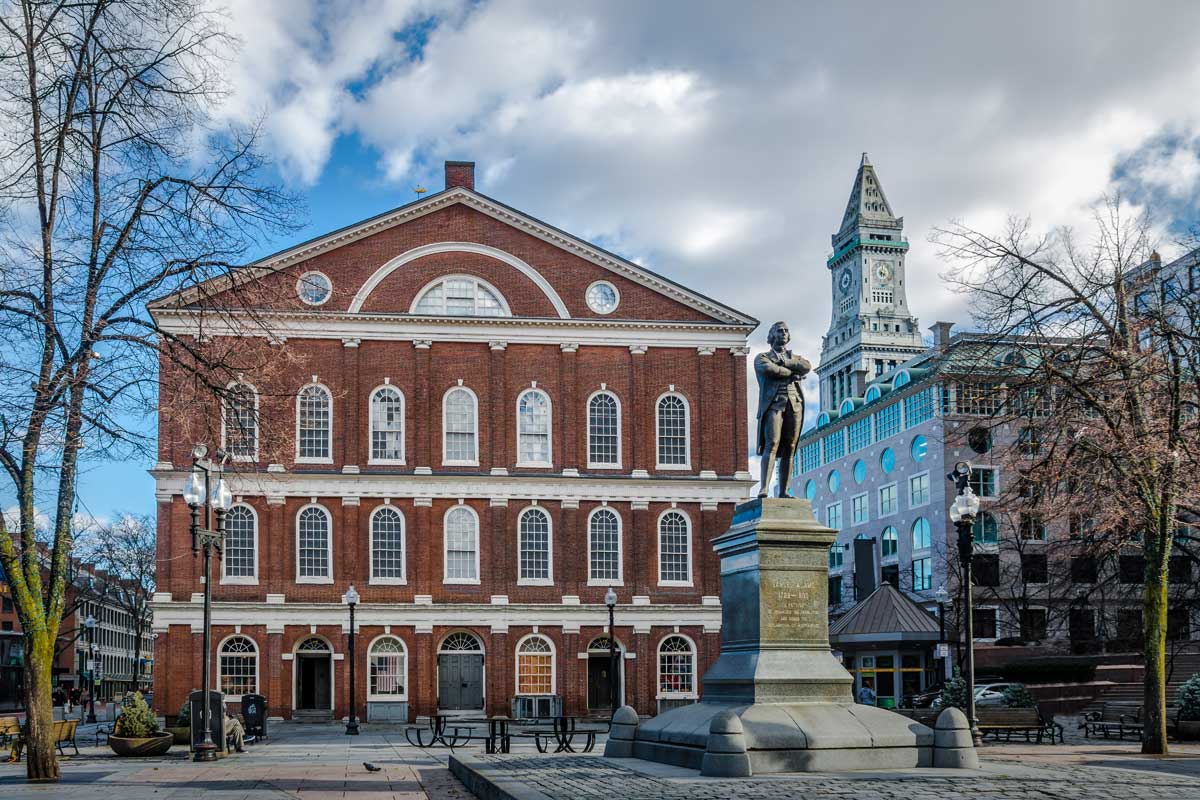Feature
A Law for All Seasons
C. S. Lewis on Civilization & the Natural Order
In G. K. Chesterton’s first Father Brown story, “The Blue Cross,” criminal mastermind Flambeau has lured Father Brown to a desolate height on Hampstead Heath as the last act in his plot to steal a jeweled cross. Flambeau is disguised as a priest, and before he discloses his true identity, he and Father Brown discuss moral reason.
Flambeau insists that the universe is too wild a place to be governed by any single concept of reason or justice. “Who can look at those millions of worlds,” he asks as twilight encroaches on the last light of day, “and not feel that there may well be wonderful universes above us where reason is utterly unreasonable?” Father Brown, however, sniffs bad theology in this attack on the reasonableness of reason, and he responds:
Reason and justice grip the remotest and the loneliest star. Look at those stars. Don’t they look as if they were single diamonds and sapphires? Well, you can imagine any mad botany or geology you please. Think of forests of adamant with leaves of brilliants. Think the moon is a blue moon, a single elephantine sapphire. But don’t fancy that all that frantic astronomy would make the smallest difference to the reason and justice of conduct. On plains of opal, under cliffs cut out of pearl, you would still find a noticeboard, “Thou shalt not steal.”
Life in Babel
The modern mind is not happy with the prospect of signs such as Father Brown imagines. Contemporary legal theory, in particular, tends to side with Flambeau against Father Brown. Each world, each society, creates its own legal signs, and the content of these signs varies so significantly that some observers appropriate Babel as a metaphor for our collective human condition.
Oliver Wendell Holmes, Jr., one of the most famous American legal lights of the twentieth century, scoffed at the idea of a “brooding omnipresence in the sky,” that is, of notions of right and justice that existed prior to and distinct from the particular laws enacted by each jurisdiction, which we call positive laws. Lawmakers, he believed, devise laws always and only because the content of particular laws suits them, not because these laws mirror any principles of natural justice. Insofar as one judges that laws are an expression of particular values, Holmes insisted that values themselves are “generalizations emotionally expressed,” without “transcendental sanction.”
This view of the law, which inspired the so-called legal realist movement in American legal scholarship of the 1930s and early 1940s, is sometimes referred to as “legal positivism,” and it came to dominate American jurisprudence during the twentieth century. It supplanted as reigning theory, though it did not extinguish, the natural law tradition, according to which positive laws find their legitimacy through their correspondence with objective moral principles or “higher law.”
I intend to consider briefly what C. S. Lewis’s writings might contribute to those contemplating the creation of law in the precincts of Babel. In particular, I seek to discern what counsel Lewis might offer to religious believers about their role in the creation of law through the political process.
Life in the precincts of Babel can be frustrating, and frustration with the possibility of public discourse has driven some religious believers either to retreat from the public square or to attempt to dominate it. Some observers, like Stanley Hauerwas, contend that significant participation in the political process is now impossible because of the collapse of a common moral language, and that, therefore, believers should henceforth retire to communities of faith in which they may live out the principles of those communities.
Others, however, favor the imposition of theocratic solutions of one sort or another on our fragmented moral condition. Those of this mind are anxious to see divine commands, as revealed in Scripture, incorporated into legal norms and enforced through the power of the state, so that the voice of the law is essentially the biblical “Thus says the Lord.”
Timothy L. Hall is the president of Austin Peay State University. He is the author of several books, including Separating Church and State: Roger Williams in America (University of Illinois Press), and, most recently, Religion in America: Eyewitness Accounts (Facts on File). He and his wife live in Clarksville, Tennessee, where they attend a Southern Baptist Church.
subscription options
Order
Print/Online Subscription

Get six issues (one year) of Touchstone PLUS full online access including pdf downloads for only $39.95. That's only $3.34 per month!
Order
Online Only
Subscription

Get a one-year full-access subscription to the Touchstone online archives for only $19.95. That's only $1.66 per month!
bulk subscriptions
Order Touchstone subscriptions in bulk and save $10 per sub! Each subscription includes 6 issues of Touchstone plus full online access to touchstonemag.com—including archives, videos, and pdf downloads of recent issues for only $29.95 each! Great for churches or study groups.
Transactions will be processed on a secure server.
more on C. S. Lewis from the online archives
more from the online archives

37.5—Sept/Oct 2024
Why Law Schools Can't Teach Law
A sidebar to How Law Lost Its Way by Adam MacLeod
calling all readers
Please Donate
"There are magazines worth reading but few worth saving . . . Touchstone is just such a magazine."
—Alice von Hildebrand
"Here we do not concede one square millimeter of territory to falsehood, folly, contemporary sentimentality, or fashion. We speak the truth, and let God be our judge. . . . Touchstone is the one committedly Christian conservative journal."
—Anthony Esolen, Touchstone senior editor












